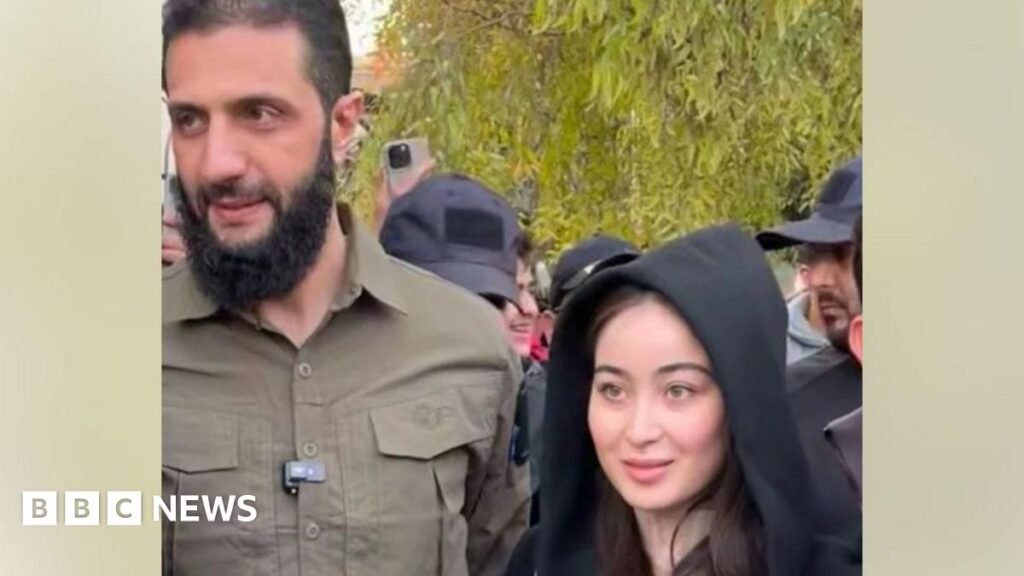Syrian rebel leader Ahmed al-Sharaa has dismissed online controversy over videos showing him instructing a young woman to cover her hair before taking a picture with her last week.
The incident drew criticism from both liberal and conservative commentators amid intense speculation about the future direction of the county after the rebels took power.
Liberals saw the request by the leader of the Sunni Islamist group Hayat Tahrir al-Sham (HTS) as a sign that he may try to establish an Islamic system in Syria after the ouster of Bashar al-Assad, while hardline conservatives criticized him for agreeing to be photographed with the woman in the first place.
“I didn’t force her. But this is my personal freedom. I want to be photographed the way I’m comfortable.” Sharaa said in an interview with the BBC’s Jeremy Bowen.
The woman, Lea Heirala, also said she was not bothered by the request.
She said he asked in a “gentle and paternal way” and that she believed “a leader has the right to be represented as he sees fit.”
However, the incident highlighted some of the difficulties any future Syrian leader may face in addressing and unifying such a religiously diverse country.
Sunni Muslims make up the majority of the population, with the remainder divided between Christians, Alawites, Druze and Ismailis.
There is also a wide range of views among the various political and armed groups that have opposed Assad, with some wanting secular democracy and others wanting rule according to Islamic law.
HTS, a former al-Qaeda affiliate, initially imposed strict rules of conduct and dress codes when it seized control of the former rebel stronghold of Idlib province in 2017. However, in recent years it has lifted these rules in response to public criticism.
The Koran, the holy book of Islam, commands Muslims – men and women – to dress modestly.
Male modesty was defined as covering the area from the navel to the knees, while for women it was generally seen as covering everything except the face, hands, and feet when in the presence of men to whom they are not related or married.

